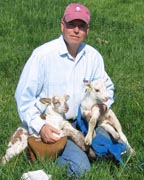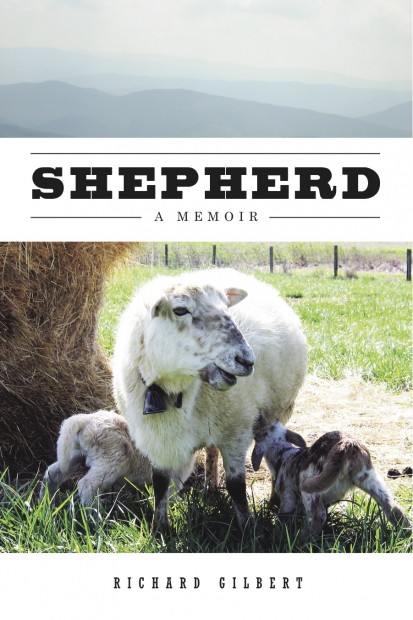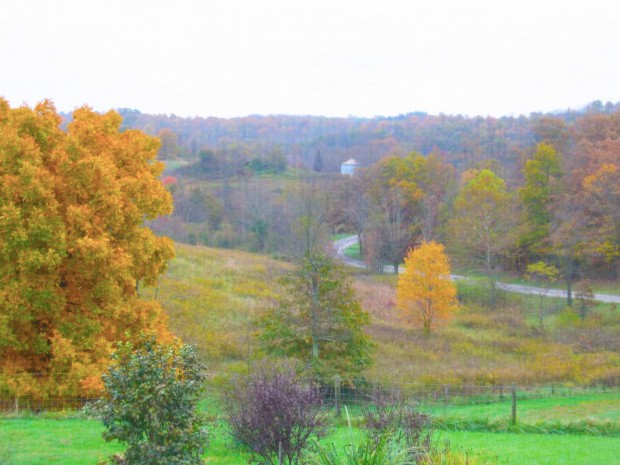
Guest contributor: Richard Gilbert
From Blogger to Author: Learning the Blogging Genre & Blogging a Book
categories: Cocktail Hour / Reading Under the Influence
10 comments
Five years ago, in July 2008, my blog was born with its first post. Those first uploads for Draft No. 4, then named Narrative, gave me fits. How I slaved over them. Obsessively I rewrote them and made my wife read them, or listen to me read them. What I was learning—am learning still—was that blogging is its own genre.
When I began, I was writing the second version of my memoir. I was full of insights about writing I wanted to share. But my persona perplexed me. Who was speaking? And to whom? Was my stance full of pride of accomplishment, or humbled by the work, or somewhere in between? Unlike the essays I was quarrying from my chapters and sending out to editors, at least I was publishing my posts. Blogging offers such gratification that way.Eventually I got curious about what others were doing, and actually started reading blogs. A big leap forward. All writers must read what they’re trying to write! I enjoyed the conversational tone of this blogger, admired the brevity of that one, loved the lyrical fluency of another. I now have RSS feeds of dozens of blogs fed onto my iGoogle page. (Google’s decision to kill iGoggle is causing me angst—the substitutes for it I’ve seen make far too big a deal of each post, when I want to scan headlines.) Gradually I took the next step, which was commenting on others’ posts. A defining feature of this genre is its reciprocity.
Yet blogging, as part of social media, gets tarred with criticism that attends the web’s supposedly narcissistic chattering. In the recent Harper’s (August 2013), there’s an essay by Mark Kingwell, based on his speech to the Writer’s Union of Canada, that cites studies saying college students are 48 percent less empathetic than they were in 1979 and that narcissistic personality disorder is almost three times higher for twentysomethings than for those 65 or older. “These trends,” Kingwell intones, “strongly correlate to increasing online connectedness.”
This makes intuitive sense to anyone who has noticed how kids today are always staring into screens or walking about with cell phones pressed to their ears. Then again, geezers have always felt the younger generation is going to hell. For the record, I’m 58, and I doubt the Internet in general or my blogging in particular have made me more narcissistic than I was before I got a new outlet to seek more attention for myself. That’s a human characteristic.
Kingwell also resurrects the ideas of Marshall McLuhan, most famous for saying “the medium is the message.” I love McLuhan’s reading theories because he was such a product of print culture himself but blamed print for causing humanity’s second Fall from Eden. Print privatized us, McLuhan says. It drove us inward into our individual egoistic selves, and we lost our true connection to each other—which was verbal, tribal, telepathic. Hello Guttenberg, goodbye oral culture!
Probably true, and definitely stimulating, but who ya gonna call? The horse has fled the barn, Humpty Dumpty has shattered, Elvis has left the building. At least citing McLuhan makes clear that, if print’s effects themselves are evil, then online connectedness isn’t a cause but only its latest iteration. Whew. As Forrest Gump said, “One less thing.”
Authors now are constantly flogged by agents, publishers, and experts to blog, tweet, tend a Facebook page, and otherwise obtrude themselves upon the online reading public. I am lousy at all those things except blogging, which for some reason I’ve kept doing like clockwork, pretty much every five days for five years.
Early on I fretted, even on the blog, that it might hurt my “real” writing, the book, because it fostered telling rather than showing, was didactic rather than evocative. Or something. It didn’t, of course. For me, blogging has been another chance to make sentences, and that always helps.
I didn’t start blogging to promote my book, but to write about writing. I know, just what the world needed, another blog about writing. But here I am, five years later, with a fair number of followers, a few loyal readers who comment on posts, publishers who beg to send me review copies. And a magazine that just asked me to review two books—a paying gig for a real gatekeeper, because of my blogging. And soon, my own book to further legitimize me . . . as a blogger?
Strange, this dual career. Well, a blogger first I was.
Blogging my book, picking its cover
I wonder how authors who start a blog just to promote a book keep going. Some will surely become true bloggers. (Welcome to the club.) In my case I wrote more and more about Shepherd: A Memoir as I produced six versions. Let me repeat that for other slow learners like me. Six versions. It took me seven years. Really more, but my mind seizes up at seven. I blogged for five of those years, a public apprenticeship. Thank God I didn’t start blogging to promote my book.
It’s about how I, a guy who grew up in a suburban beach town in Florida, ended up operating a sheep farm in the Appalachian hill country of southern Ohio. It’s about my obsession with my charismatic, distant, farming father and about my father’s traumatic sale of our family farm when I was six. It shows how I was even more scarred by something else—the effect of my grandfather’s suicide on my father—but that I couldn’t see that. My story wasn’t quite so crystallized at the start, especially in its emphasis on my father. What I really wanted to do—and this was my project’s worthy seed, I believe—was to try to explain, so someone else would understand, what it was like to win Mossy Dell, the farm of my boyhood dreams, and then to lose it when I got hurt and had to downsize. That’s really what my literary ambition came down to. I yearned to tell about losing a magical farm so that someone else would understand.
I crowed when I published some excerpts, and kept mostly quiet when an essay, or the whole thing, got rejected. I began to wonder if I’d have to publicly concede defeat. Imagine how embarrassing that would’ve been for me as a blogger! To say the least, I felt a tad overexposed. Finally last May I was able to announce that Shepherd: A Memoir had been accepted by Michigan State University Press.
Now, as my manuscript moves through my publisher’s system, long silences are broken by sudden communication. Like recently getting an exact publication date, May 1, 2014. The most recent news was even more thrilling. I got to see—and to pick—the cover of my book. For an author to select his book’s cover is fairly unusual, at least in the university press world. The publisher’s job is to package and market; authors throwing their weight around can muck that up. But they were deadlocked between two covers, and sent me both to break the tie.
I’d known they were basing the jacket on the picture I took of Freckles with her nursing newborn lambs, standing beside a giant hay bale eaten into a half moon. The color scheme I could only imagine, and the font. I opened the pictured cover first and was thrilled by its overall beauty and its thoughtful composition. The big surprise was the range of blue mountains at the top. My narrative embraces neighboring mountainous West Virginia, but the story is set mostly in Ohio’s gentler hill country. Yet I think it’s wonderful that this design says, as if the artist had read my memoir, “This is a book about place.” Yes. The Appalachian foothills of southeastern Ohio and their human inhabitants, many of them refugees from West Virginia, are a huge part of the story about my and my family’s life there as we operated a sheep farm for a decade.
The other jacket was an extreme closeup of Freckles’s face, plus the butt of the lamb at the right. More dramatic. (Sorry, my publisher won’t let me show it because such images spread and can end up being listed as the cover.) But to me, it lacked the other’s multiple messages—of course such complexity can be risky. Friends I polled who voted for it liked the “faces” and the “in your face” quality of it. But they didn’t know this author’s marketing strategy, which sometimes seems even to me as convoluted as a barrel of fishhooks.
My book is a literary memoir that tells a dramatic story of dreams, dislocation, culture shock, fatherhood, farming, and rebirth; and it’s about coming to love an ornery place that, unlike much of America, hasn’t been blandly homogenized. Yet I want it stocked in the gardening-farming-nature sections of bookstores. Memoirs come and go—mostly go, in that busy category—but my book’s niche audience—homesteaders, hobbyists, and armchair farmers—might keep it in print a long time.
Years ago Purdue University Press published a little memoir called Shepherdess: Notes from the Field that was coded on the back “Science & Technology / Memoir.” Multiple categories like that stoke authors’ hopes that bookstores will stock their books in two or more places; it’s called double stocking, and they won’t. Shepherdess stayed in print almost 20 years, however, because booksellers took their cue from the first category and stocked it with homesteading, gardening, and nature books. Likewise, mine has a chance to stay in print for more than a year if folks browsing the back-to-the-land gulch see and buy it.
Which brings me back to the covers. The second, in that context, says, “This is a book about how to raise sheep.” Nope. Totally misleading. I made every mistake as a bumbling shepherd; the book really depicts my emotional journey as a farmer and as the son of a failed farmer. While I want it in the practical section, I want those who pick it up there to be told right away, by its cover—by those mountains—that it’s a layered personal story involving place as well as sheep. The complexity of this cover takes away the how-to curse.
Then browsers will open it to its romantic frontispiece map of my old farm and its neighborhood, an image which says, “This is a book by and for dreamers like you.” Which I hope will set the hook. Anyway, it’s the book I would’ve bought as a young man grieving my father’s loss of our farm.
The glory and crisis of my new web site
Just before my book cover arrived, I had my blog site redesigned. I’d left my WordPress host and went self hosted, as they say. My motive was flexibility in page layout to better feature my book. And maybe to reward myself for five years of blogging. Hosting one’s own blog and author site isn’t necessary, but experts—them, again!—advise it because it gives a margin of control. You do give up some great hosted connectivity in the blogging world, and possibly some nifty services. I’ll see.
Having decided on a makeover I sought a freelance designer. There are website design companies that specialize in author websites, of course, but some of their sites looked too slick to me. And I wanted a one-on-one relationship with a designer. Plus—and this was the deal-breaker for me—the companies I looked at really want to host their clients’ sites. I understand their desire and its benefits, but I’ve been steering this little ship for five years and want to continue to guide it. No middlemen. For one thing, I feared it would be harder to move my site if I wanted to. For better or worse, it’s mine.
So I checked out a talented young designer, Josh McCall, who’s also a fine fiction writer and essayist. I noticed he’d designed the web site for my friend Dinty W. Moore. And for self-hosted sites Josh uses WordPress.org software, which makes importing content from a WordPress.com blog easier. He mentioned some hosting options, and I picked A Small Orange, which seems user-friendly. And though I’ll have to upgrade soon, it’s cheap, only $35 a year for its “Tiny” plan that I’m starting with.
Josh also transferred the custom url I’d been paying WordPress a little extra for. Readers transferred seamlessly without having to do anything, unless they’d bookmarked my first WordPress url, richardgilbert.wordpress.com, which had continued to function with my custom url. Despite a few initial glitches in the July re-launch, I’m still rejoicing because Josh was able to import my blog’s entire five years of posts and photos. I’ve heard tales of massive content losses in such a switch.
My sleek new site, however, threw me back to the agony of my first days of blogging. I was like a writer who achieves some success at his card table in the kitchen, replaces it with a big oak desk in an artsy atelier out back, and for the first time suffers writers block. I’m gutting it out and getting better. Sometimes, though, I miss my old site, which still drifts out there—and may even outlast my new site, since once I stop paying my host, it’s toast.
So, is blogging narcissistic? Is art? Are writers unusually self-involved? Does it matter, if their work serves the reader? I doubt writing has helped my psyche, but I can’t blame it for creating it. As Jonathan Franzen wrote of Charles Schulz, “He wasn’t an artist because he suffered; he suffered because he was an artist.”
I once asked a landscape painter what he got from a lifetime of looking at the hills in southern Ohio, and he couldn’t or wouldn’t answer. Anyway, he didn’t. My question was backward. The question is what compelled him to look at the hills in the first place. Love for subject, which is the world, after all, and for the craft is what must drive the artist, the writer. Maybe the humble blogger. These are not egoistic matters, no matter how limited someone may be in daily life. Artistic expression, which arises from the self and uses the self, offers transcendence from self.
For me, it comes down to the love of making sentences. Trying with my cracked instrument to create and sing a song that’s authentic. In whatever medium.
Richard Gilbert is author of Shepherd: A Memoir (Michigan State, 2014), and teaches writing at Otterbein University. His essays have appeared in Orion, Brevity, Fourth Genre, River Teeth, and other journals. He blogs at Draft No. 4.





I once asked a landscape painter what he got from a lifetime of looking at the hills in southern Ohio, and he couldn’t or wouldn’t answer. Anyway, he didn’t. My question was backward. The question is what compelled him to look at the hills in the first place. Love for subject, which is the world, after all, and for the craft is what must drive the artist, the writer. Maybe the humble blogger. These are not egoistic matters, no matter how limited someone may be in daily life. Artistic expression, which arises from the self and uses the self, offers transcendence from self.
Experience is the best teacher. You can read all you want but, until you actually get out there and apply what you’ve learned, it will forever be nothing more than theory.
I remember the first blog post I ever did, it was a bit of a struggle to get things set up but, I did it and it felt great to know that I could do something that “technical”. Now, it’s a piece of cake. Sometimes you just got to get out there and give something a try, you might surprise yourself.
Thanks,
Shruti
I agree, Shruti. Doing something—writing that post, writing that book—is the necessary first step. In the end, that and sticking with it are all that matter.
Thanks for this, Richard. It really articulates what a lot of us are feeling. It’s a brave new world and this helps me think about it in a way I hadn’t before.
Thanks, Dave. We are pioneers!
Honestly, I think we’re all narcissistic pretty much all the time about everything (even the most poignant display of service toward others is tethered to a subconscious feeling of accomplishment I doubt we can shake). But like you said, I’m not sure it matters if the product is “good.”
For me, blogging was a means to keep writing in the midst of a period of complete artistic stagnancy right after college. It served as the bridge between writing like it was my job as an English major in school, to writing like it was my job in the present because well… I want it to be my job. So blogging, in my opinion, is almost crucial because it keeps the juices flowing. Whether you blog to promote something else or blog for its own sake, it serves the same purpose- you get to continue to make sentences.
I must say though, as for the question to whether it’s good for the psyche, I think that’s an easy one: most definitely yes. My last screenplay opens with a voiceover saying basically “no pain, no art.” Art helps us deal. How did you deal with the downs of your experiences, after all? You wrote about them. And even if it didn’t “fix” much, imagine how you would’ve felt if you hadn’t written about them, just keeping it all inside.
Side question for you: I do believe blog posts should be short (honestly Bill, I do, I promise!), because internet readers have way shorter attention spans. When your addiction to making sentences makes one’s internet writing meander, how much savagery should you use to reign yourself in?
This was a nice piece, and I enjoyed it! Thank you!
Vasilios, I think one could try to put a word limit on oneself, like 750 for a single post, and see if he could live with it. Other than generally trying to keep my posts shorter, which kind of works to an extent on my site, I haven’t set a word limit—might be a good discipline and craft muscle-builder, though. I have a friend whose book reviews on his site are always like three short paragraphs, kind of gets way up to 30,000 feet, and I like reading them.
Wonderfully edifying meander through the art of blogging and your new book. I have followed your blog for most of its life and watched with great pleasure how you have grown as a writer and into a first-rate book reviewer. One of the joys of reading blogs consistently is to watch the growth of the blogger. Congratulations!
Thanks, John! I hope you like my new design as well…
Tru dat!